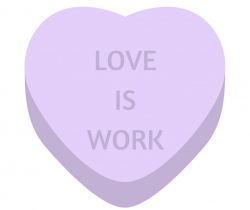Suicide, positivity, and well-being may seem like odd bedfellows – and outside my wheelhouse – but for more years than I wish to remember, I have been confronted with the seeming never-ending cross-section of these three topics. I urge you to watch the video conversation between myself and Jack Colton, CEO of Silent Rich. As always, if you need help, please reach out to the national suicide hotline: 800-273-8255
Before you watch the video, ask yourself this question:
What is your earliest recollection of suicide impacting your life?
Given all I know today, I seem to be one of the lucky ones. I was in my early 20’s (the late 1970s), and a boy who grew up on our block, committed suicide. I remember how his death was viewed in hushed tones, hearing and remembering how different he always was – I experienced him as reserved and not wanting to engage. There were also whispers about how he liked boys and that was probably why he did it. About a decade later my dad may have filled in another part of the story. My dad was recounting how he had learned that some of the boys on the block were sexually abused by an older male neighbor. As I remember my dad telling me, he went to the parish priest for advice. The priest advised him to do nothing, just forget about it and the boys would forget about it too. As I write this blog, I am amazed how wrong so much of what I was taught about suicide and sexual abuse, was. For me, appreciating that I can evolve my learning is where grounded positivity and personal well-being come in. However, since Jack’s experience was different than mine, I want to offer his responses to some follow-up questions that I asked.
What was your earliest recollection of suicide impacting your life?
Jack Colton: In terms of Mom battling with deep depression and frequently talking about it or threatening it, honestly as young as I can remember. It [her talk] would later grow into light / mild attempts. That seemed to have been so constant and ongoing of a “go-to” that it eventually spilled to other family members as well, including all my immediate family being hospitalized for their own attempts.
For myself, knowing that’s almost programmed in there and, as a result, it often being a subconscious thought during tough times, it’s a matter of acute awareness, and attempting to keep as many safeguards in place as possible. Specifically, people I know who depend on me and related responsibilities.
What is the question that you wished I had asked you about your experience?
Jack Colton: That on its own is always a great question. 🤓 I think the single biggest thing everyone involved — those battling suicidal thoughts and those who love them, can do is really try to find compassion.
Offer compassion for yourself if you’re the one in crisis and understand that it’s ok to feel what you’re feeling, but that it doesn’t have to be this way. Answers are out there. That you can and will find peace in living, and that a permanent solution to temporary problems will only hurt you and cause tremendous pain to those you love.
And for those around others who are in crisis, have compassion for their battle, because it truly is a battle. Try not to minimize it or take it personally (which is often very hard not to do), but love them and keep being present for them.
Being on either side of these situations is very tough and can be wildly different depending on the person. It’s as ok to not be ok as it is ok to not know what to do, but it all starts with making an effort to figure it out and then committing to doing what it takes to live.
Thank you, Jack, for your authentic transparency.
Steps to Positivity and Well-Being
- Be aware of your thoughts – at all times. The basis of positivity – or your ability to be positive – is how and what you think.
- Have compassion for yourself and others. Making your well-being your first priority before all or any other accomplishments are considered, is based on having compassion for yourself and others. What does compassion look like? For yourself, it is noticing your thoughts, not judging yourself as weak, stupid, etc. For others? Compassion for others in crisis (or in general) is to remember to listen, do not offer advice, just listen. The easiest way I know to do that is to remember you have 2 ears and 1 mouth – listen twice as much you speak.
- Stay connected to others even when you don’t want to. Use your human network to help and be helped. That is compassion and well-being in action.
In the end, as often as possible, remember:
People matter. You matter. All people matter.
This blog is personally dedicated to my cousin and co-author, Gary Russo. You mattered. You are loved. You are missed by so many.



